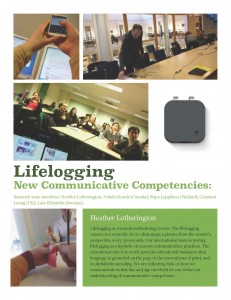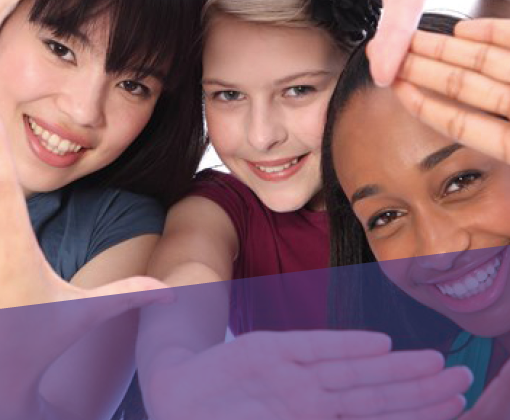Communication practices are changing rapidly and dramatically, and the bulk of this change has taken place over the course of a single generation. Documenting evolving communication practices in our digitally-enmeshed social worlds is the goal of this research project. Research Team
- Heather Lotherington (York University, Canada)
- Natalia Ronda (Council of Ministers of Education, Canada)
- Sirpa Leppänen (University of Jyväskylä, Finland)
- Constant Leung (King’s College London, United Kingdom)
- Lars Elleström (Linnaeus University, Sweden)
To capture quotidian communication practices, we are exploring lifelogging as a methodology. Lifelogging requires participants to wear a small, unobstrusive digital camera that snaps pictures at 30 second intervals from the wearer’s perspective. We are collecting slices of life from different wearers as they go about their daily interactions to document mediating interfaces and discourse practices in human interactions. Our work addresses educational and linguistic questions about how we communicate, and aims to critically rewrite outdated notions of communicative competence. Given that education is historically linked to print literacy, there is an insistence that language is grounded on the page, and assessed in terms of alphabetic and grammatical encoding conventions (i.e., spelling, essay writing, etc) that is difficult to dislodge and update. Critically, common benchmarks in teaching and assessing linguistic and literate communication are based on increasingly obsolescent and supplemented practices. We are using lifelogging as a keyhole on quotidian communication practices—variously mediated: face-to-face interactions; via mobile as well as desktop devices; with traditional textual interfaces; and as we transit through our encoded world to create a larger picture of our contemporary communicative world.

















